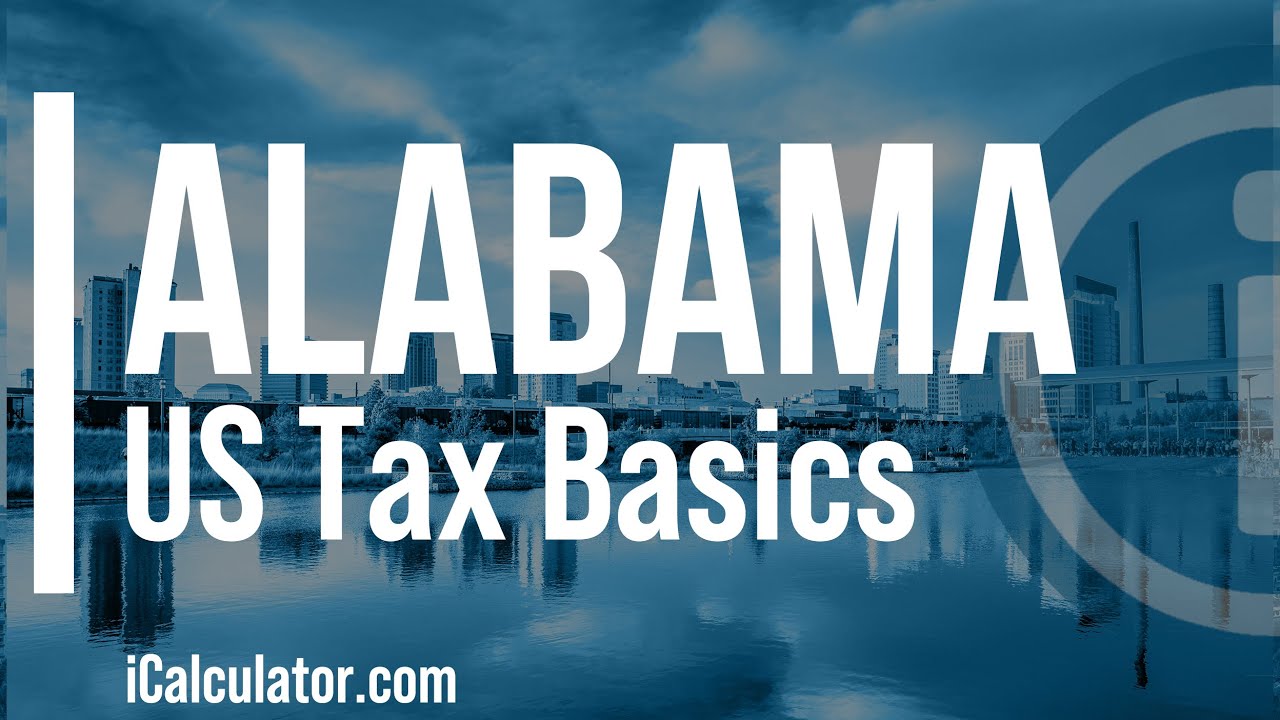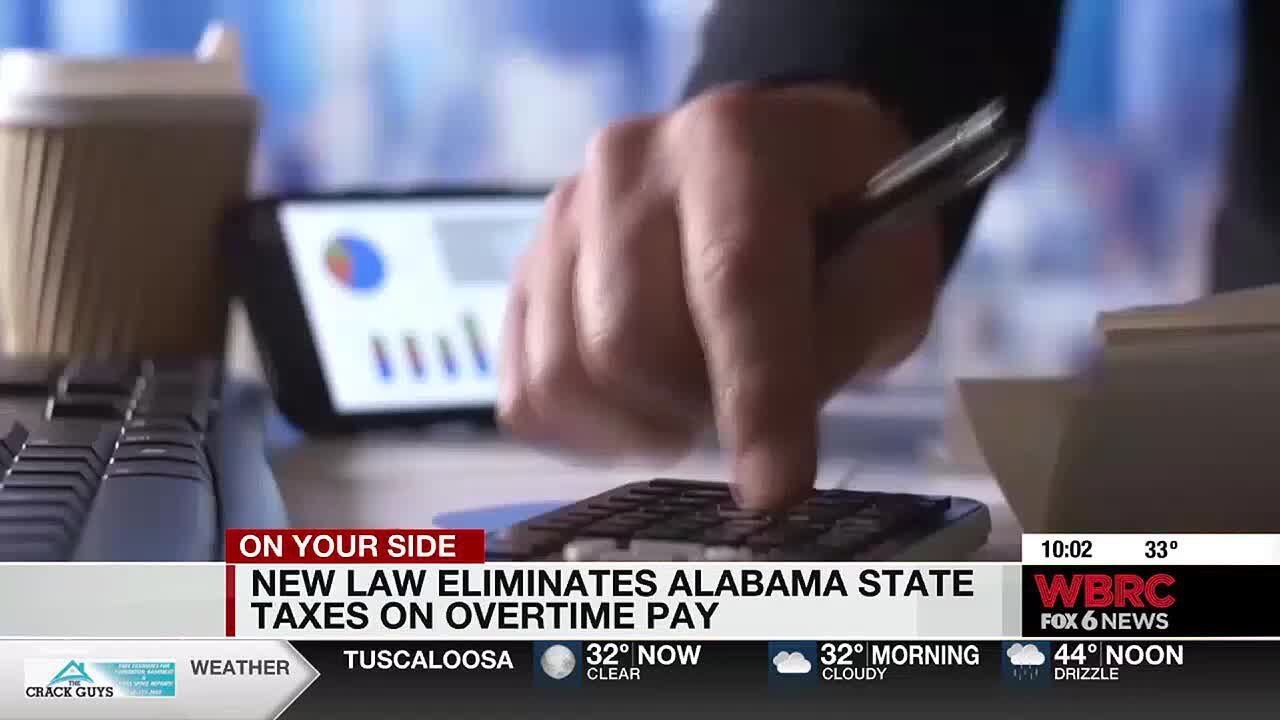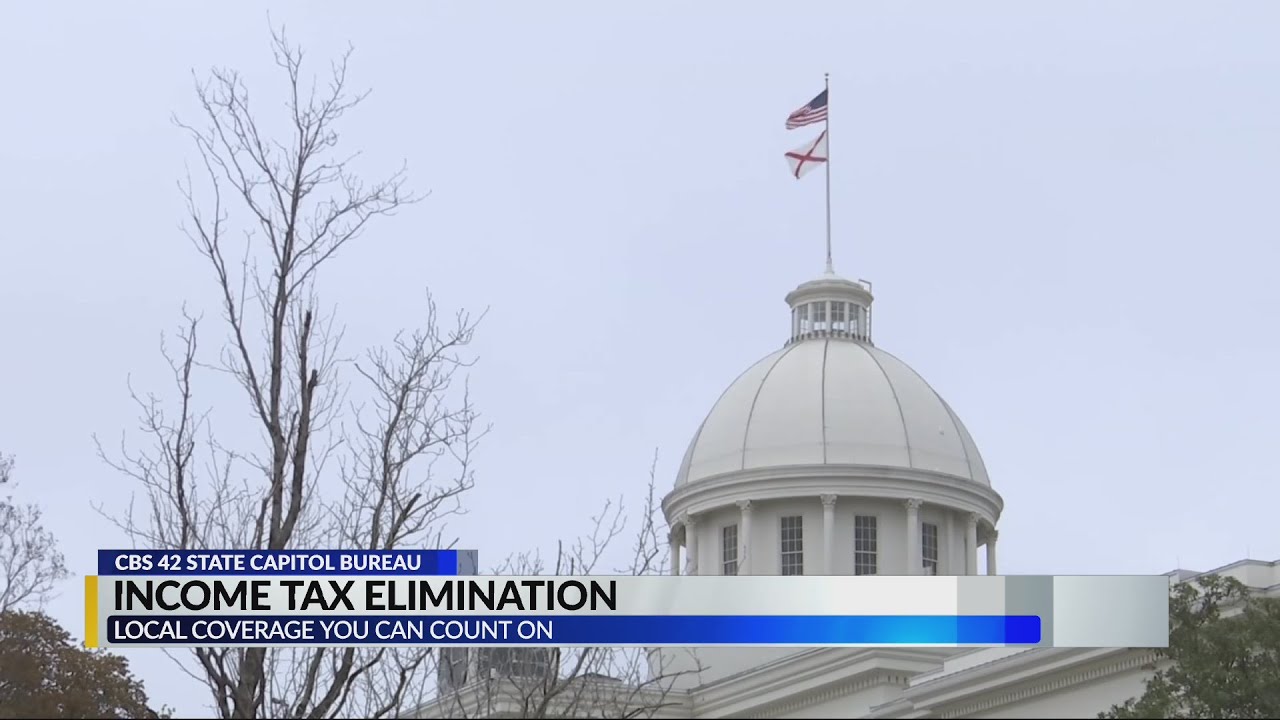Navigating the complexities of state taxes can be as perplexing as trying to hit a curveball in the bottom of the ninth inning. For Alabama residents, understanding the ins and outs of state taxes is crucial, especially when dealing with the sometimes surprising 5% tax rate. In this comprehensive guide, we’ll cover everything from the basics to savvy tax strategies that can help you manage your finances in the Heart of Dixie more effectively. So grab your metaphorical bat, and let’s tackle the Alabama state taxes together.

The Landscape of Alabama State Taxes: What Residents Face
When we look at the Alabama tax system, it’s clear that we’re dealing with a unique beast. It’s a system characterized by a concoction of low property taxes but high sales taxes, especially compared to many of its fellow states. With property taxes that would make any retiree smile, at an astronomically low average of 0.41%, Alabama provides an alluring haven for homeowners. However, when it comes to sales tax, Alabama swings back hard – residents face a combined sales tax rate that can reach as high as 11% in some locales, making it one of the heaviest hitters nationwide.

Alabama State Income Tax: Breaking Down the Basics
Now, let’s dive into the nitty-gritty of Alabama state income tax. This tax operates as a graduated system with increasing rates based on income levels. Single filers with an AGI over $3,000, head of households over $7,700, and married individuals filing separately over $5,250 are stepping up to the plate to face that top 5% rate. Though, let’s remember the state’s Constitution has a firm grip on that rate, ensuring it won’t balloon past 5%.
In Alabama, the tax brackets are a bit like bases – you’ve got first base at 2%, second base at 4%, and then you slide into third with a 5% rate for incomes above $3,000 (single filers). Here’s another kicker: standard deductions and personal exemptions are up for grabs, giving taxpayers a chance to reduce their taxable income right off the bat.

| Category | Details |
|---|---|
| Income Tax Rates (Individual) | Graduated rates, dependent on AGI and filing status: 2%, 4%, 5%. |
| Income Tax Brackets (Single) | 2% on first $500 of taxable income, 4% on next $2,500, 5% on all over $3,000. |
| Income Tax Brackets (Head of Family) | 2% on first $500 of taxable income, 4% on next $2,500, 5% on all over $3,000. |
| Income Tax Brackets (Married Filing Separately) | 2% on first $500 of taxable income, 4% on next $2,500, 5% on all over $3,000. |
| Corporate Income Tax Rate | 6.50% |
| Sales Tax Rate (State) | 4.00% |
| Sales Tax Rate (Local Maximum) | 7.50% |
| Combined Sales Tax Rate | Average of 9.25%, can be as high as 11% depending on local municipalities. |
| Property Tax Rate | One of the lowest in the USA, averaging around 0.41% of property value. |
| State Business Tax Climate Index Rank | 39th overall (as of 2024) |
| Local Income Taxes | Jurisdictions may impose their own local income taxes. |
| Tax Requirements | Applies to residents or nonresidents receiving income from an Alabama source. |
| Tax Filing Deadline | January 20th of the year following the tax year for Annual filers. Electronic payments due by 4:00 p.m. CT. |
The Specifics of the 5% Alabama State Income Tax Rate
Who exactly gets to play ball with the 5% income tax bracket? It’s mostly those with a fuller income scorecard – individuals and couples earning above those thresholds mentioned. And when you stack ‘Bama up against its neighbors, this rate might seem manageable, considering other states can pitch rates exceeding 5%.

Additional Alabama State Taxes: Beyond Income
Alabama doesn’t stop there. Imagine you’ve just managed a base hit with income tax, but now you’ve got to steal second with sales, property, and potentially even estate taxes. Unlike the property tax (which is like a gentle toss), the sales tax can be a fastball, particularly when local taxes step into the game and push the rate to the higher echelons of national rankings.

Tax Credits and Deductions in Alabama: Lessening the 5% Impact
Sure, that 5% might sound steep, but here’s the pitch – Alabama has a roster of tax credits and deductions that can ease the burden. The Alabama Accountability Act Tax Credit, for instance, can be a game-changer for some taxpayers. It’s all about strategic swings; knowing which deductions apply to you can shape your entire batting average when tax season rolls around.
Alabama State Taxes for Businesses: A Dual Perspective
What about the big leagues – businesses? Well, with a corporate income tax rate set at 6.50 percent, Alabama offers a competitive field. Whether you’re managing a small startup or a large corporation, understanding how the state’s tax environment influences your strategy is vital for a home run.
Professional Insights: How Tax Experts Advise Navigating the 5% Curveball
Talking to the pros can make all the difference, which is why we’ve pulled in advice from tax experts – the seasoned players in the world of Alabama taxes. From intricate tax planning to identifying the most common pitfalls, these insights can prepare you to bat a thousand.
Policy Debates on Alabama State Taxes: The 5% Discussion
No tax guide would be complete without touching on the heat of current debates. Proposed changes to the Alabama tax code have the potential to impact every taxpayer in the state. Whether the 5% remains static or sees a shift, understanding the playing field can put you in a better spot to anticipate what comes next.
Tax Software and Tools: Simplifying Alabama State Taxes
Home runs aren’t just for players with brute strength – sometimes, it’s the technique that counts. In the world of taxes, this means leveraging the best tax software and tools. Efficiency and precision in tax preparation lead to a smoother path through the labyrinth of tax codes and regulations. And with the right tools, even the daunting 5% rate can feel more like a slow groundball than a curveball.
The Future of Alabama State Taxes: Predictions and Trends
As Alabama continues to stride through the economic playing field, the state’s tax rates and structures are bound to adapt. By preparing for these changes and understanding how the game may evolve, Alabamians can position themselves as star players in managing their tax responsibilities.
Conclusion: The Curveball Mastered – A Look Forward for Alabama Taxpayers
There you have it – a full rundown on Alabama state taxes. By stepping up to the plate with knowledge and strategy, you can navigate the 5% challenge like a pro. Remember, the key to mastering Alabama’s tax curveball lies in understanding the system, utilizing available tax advantages, and staying nimble as regulations evolve. Keep a keen eye on the ball, and may your tax season be a grand slam.
Alabama State Taxes: Navigating the 5% Curveball
When it comes to understanding Alabama state taxes, you might feel like you’ve been thrown a fast one—especially with that 5% tax rate curveball. But don’t worry, we’re here to catch you up with some engaging trivia and facts that’ll make you a pro in no time!
The Commitment to Understanding Taxes
Learning about Alabama state taxes is sort of like diving into the world of finance; it takes a bit of commitment. Now, when we talk about What Is commitment, we’re not just whistlin’ Dixie. It’s the steadfast dedication to unraveling the nitty-gritty details of tax brackets, deductions, and exemptions. And let me tell you, embracing this commitment can be as satisfying as catching that winning home run ball at an Alcaraz Vs Djokovic match.
The Signature Twist on Sales Tax
Did ya know Alabama’s state sales tax is like having a visa signature card in your wallet? It’s because both can give you some perks—but also some surprises. While your Visa might score you rewards, Alabama surprises you with additional local sales taxes that vary between cities and counties, turning shopping into a bit of a guessing game. Remember, just like your credit card, it always pays to know the fine print.
Nutrition for Your Brain and Wallet
If we shuffle down the aisle of deductions, you won’t find Enfamil Neuropro, but you can nourish your brain with some juicy tax deduction info. For instance, Alabama allows for deductions on Social Security income, as well as some sweet pension perks for older folks. Pretty comforting, eh? It’s like slipping on a fuzzy sweater or a snazzy red mini dress—you( just feel good knowing you’re taking care of your wallet’s well-being.
The Adverse Effects of Missing Deductions
Hey now, don’t define adverse in terms of Alabama taxes before you hear the whole story. Sure, missing out on possible deductions or tax credits can feel like a skinned knee, but knowing where to look can turn that frown upside down. For instance, there’s a state credit for taxes paid to other states—so if you’re working elsewhere but living in the Heart of Dixie, you might be whistling all the way to the bank.
Borrowing Against Your Future
When it comes to Alabama’s approach to retirement savings, you could say they don’t quite define borrow the way you’d expect. Their tax structure lets you squirrel away some nuts into your retirement accounts tax-free. This means you can stockpile more acorns today without having to worry about the tax squirrel nipping at your heels come retirement.
A Fusion of Tax Benefits
Just like your favorite Asian fusion restaurant mixes up flavors to create something amazing, Alabama combines various tax benefits that could potentially spice up your financial life. They offer deductions for things like college savings plan contributions and even give a nod to farmers and fishermen with exemption perks. It’s like getting that extra spring roll you didn’t expect—delightful!
The AI of Tax Preparation
In a world where the importance Of Ai is ever-increasing, even Alabama state taxes are getting the high-tech treatment. With software becoming more intelligent, it’s becoming easier to tackle those complex tax forms. No need to feel like you’re trying to decipher hieroglyphics; let smart algorithms be your Rosetta Stone.
The Takeaway
Alright, alright, y’all—the lowdown on Alabama state taxes ain’t so daunting after all, is it? Armed with these fun facts and engaging trivia bits, you’re set to tackle your taxes with the gusto of a Mardi Gras parade. So go ahead, show Alabama’s 5% tax rate who’s boss and knock it out of the park!

What is the state income tax in Alabama?
– Well, buckle up! In Alabama, state income tax is a graduated affair. You could be looking at anything from 2% to a cool 5%, based on your income. Don’t forget, though, if you’re rolling in dough, you won’t be coughing up more than 5% due to the state’s constitution putting a cap on it.
Is Alabama a high tax state?
– You might say Alabama’s middle of the road when it comes to taxes. Not exactly the lowest, but far from the highest, sitting at 39th overall for business tax climate. That said, the sales tax can hit your wallet harder than expected, soaring up to 11% with local rates thrown in the mix.
Is Alabama a tax friendly state?
– Retirees, listen up! Alabama’s virtually rolling out the red carpet for you – with some of the lowest property taxes around at 0.41%. And guess what? Your Social Security? Not taxed at all. It’s safe to say, Alabama is pretty tax-friendly if you’re enjoying the golden years.
How much is Alabama state tax on paycheck?
– Curious about the bite taxes will take out of your paycheck in Alabama? Think about a scale sliding from 2% to 5%, depending on how plush your paycheck is. Of course, don’t forget the usual suspects like federal taxes and FICA that’ll also want a piece of the pie.
Is Alabama a tax friendly state for retirees?
– If you’ve got a retirement countdown going, Alabama’s looking sweet. With low property taxes and no tax on Social Security, your retirement funds are gonna stretch further. Just watch out for those hefty sales taxes – they’re a bit of a curveball.
Why is Alabama sales tax so high?
– Holy moly, Alabama’s sales tax can give you a bit of sticker shock, climbing up to 11% with local rates. Why so high, you ask? Well, the state’s gotta make up for those low property taxes and income taxes somehow, right?
What is not taxed in Alabama?
– In the world of Alabama taxes, there’s a silver lining – groceries, prescriptions, and items for agricultural and industrial use are tax-free zones. Talk about a little relief at the checkout line!
Why are Alabama taxes so low?
– Low and slow, that’s the Alabama tax way. With property taxes that are basically a blip on the radar at 0.41% and a top income tax rate capped off at 5%, your wallet isn’t feeling the squeeze too badly in the Heart of Dixie.
At what age do you stop paying state taxes in Alabama?
– Alabama rolls out the welcome mat for seniors when it comes to taxes. There’s no specific age cut-off to stop paying state taxes altogether, but those Social Security checks? They stay untaxed, and property taxes are laughably low, so that’s a breather!
What is the most heavily taxed state?
– When looking across the states, places like New York and California often take the cake for taxes; they’ve got a reputation for reaching deep into your pockets with higher tax rates and living costs that’ll make you do a double-take.
Is it better to live in a state with no income tax?
– Ah, the age-old question! States without income taxes seem like a dream, but don’t forget, they make up for it with higher sales or property taxes. It’s a bit of a balancing act, and really depends on your financial picture and how much you detest tax forms.
Is Alabama nice to live?
– Alabama, with its southern charm and sweet tea, offers a relatively low cost of living, friendly communities, and warm weather (minus the humidity that’ll make your hair do unthinkable things). So, yes, many folks find Alabama to be quite a peachy place to live!
What is a good salary in Alabama?
– A ‘good’ salary is kinda like asking how long is a piece of string – it depends! But in Alabama, where living costs are friendly to your wallet, pulling in around $50-$70k a year could have you living pretty comfortably. Remember, “good” is all about perspective.
How much is $75000 after taxes in Alabama?
– So, if you’re raking in $75k in Alabama and waving goodbye to Uncle Sam’s cut, you might pocket around $58-$60k after taxes. But hey, don’t quote me on that – always best to crunch those numbers with the latest rates or check with a tax pro.
Does Alabama tax Social Security?
– Social Security benefits in Alabama are riding in the tax-free zone! That’s right, you get to keep every dime of it from the state’s grasp, which is mighty fine news for the retirement crew.
What is Alabama income tax rate 2023?
– For 2023, the Alabama income tax train stops at stations ranging from 2% to 5%, depending on how much cash you’re pulling in. And remember, cross your heart and hope to die; they won’t dare go over that 5% threshold.
What income is not taxable in Alabama?
– In the sweet state of Alabama, things like Social Security, pensions, and some types of retirement income don’t get tangled up in the tax web. Always a plus when you can keep a little more of your hard-earned cash.
What age do you stop paying property taxes in Alabama?
– Property taxes in Alabama are as light as a feather, and while there’s no official retirement age to dodge them completely, they’re so low you might just forget they’re there.
Does Alabama tax out of state income?
– Out-of-state income? Alabama’s got eyes on that too. If you’re an Alabama resident, you’ll be tipping your hat to the state tax on all your income, no matter where it’s coming from. If you’re not a resident, only the dough you make within Alabama is up for grabs.


